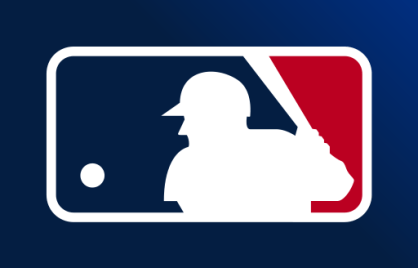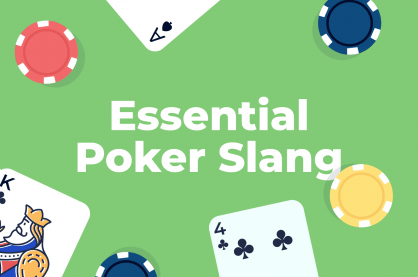10 Essential Poker Tips From a Pro to Improve Your Strategy

Poker Tips From a Pro: What You Need to Know
- Understanding Poker Hand Rankings: Beginners should familiarize themselves with the various poker hand rankings, from a High Card to a Royal Flush, as they form the basis of gameplay.
- Utilizing Preflop Charts: Preflop charts are a necessity for beginners learning Texas Hold’em poker. These charts guide what hands to play or fold before the flop, depending on your position, easing decision-making for novices and minimizing potential mistakes.
- Practice with Low Stakes Games: Starting with lower stakes allows beginners to focus on learning the game’s nuances without the stress of potentially losing large sums of money.
- Adopting a Patient Approach: Poker is a game of patience; refrain from betting aggressively with weak hands. Wait for strong cards to come your way and use them effectively.
- Developing a Keen Observational Skill: Poker isn’t just about your hand; it also involves observing your opponents. Developing the ability to decipher their tells or bluffing patterns can provide significant advantages.
Most people learn to play poker from someone they know — whether it’s a friend, a parent, or a slick college roommate. The problem with this is that, as a beginner, you often can’t tell if your teacher is actually a skilled player.
Are they really any good? It can be nearly impossible to judge. Too often, new players pick up bad habits from amateurs, which results in the “the blind leading the blind.”
Don’t take this approach. Poker is a game where strategy matters — you need more than just casual advice. Study these top 10 essential poker tips for how to beat the game and you will quickly surpass the average mid-stakes player.
Even at the casino.
Know Your Teacher: Poker Tip 1
But first, a little about me — because Lesson #1 as a poker player is that you should always be skeptical of new people and information.
My credentials:
- Author of a poker book, A Girl’s Guide to Poker
- Taught poker classes for Santa Monica College and Poker Power, including designing poker curriculums
- Final tabled a World Series of Poker (WSOP) tournament, finishing in 3rd place at the 2021 Tag Team event
- More than $100k in recorded live poker tournament earnings
- Written poker tips and strategy articles for numerous poker media outlets
But one of my proudest moments happened when I was only getting started — the first poker tournament I ever entered, I won first place.
The reason I bring this up is because I went from a clueless beginner to winning a daily casino tournament with nearly 100 players over the course of three months. How did I do this in such a short time span? Working smarter, not harder — I studied the game rigorously and efficiently.
Here are my secrets.
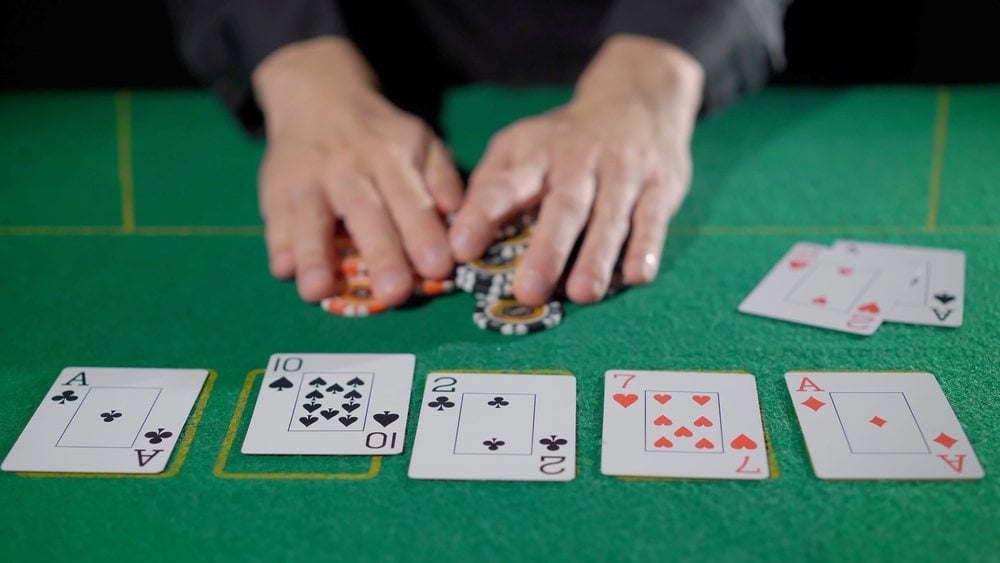
Image Credit: Vimpro/Shutterstock
9 More Essential Poker Tips You Need to Know
Poker Tip 2: Fold, Fold, Fold!
Whenever anyone asks me how to get better at poker, my answer is always this: FOLD! If you’re asking that question, you’re probably not folding enough. Folding always tops the list of critical poker tips.
Professional poker players fold around 80% of their hands before the flop. That’s right — you could be sitting at the table for over an hour without being dealt a single playable hand.
Why is this important? Because the simplest way to excel at poker is by playing stronger hands than your opponents. You need to be incredibly intentional with your hand selection — focus on playing only the most premium card combinations.
This not only gives you a mathematical edge but also sharpens your mental toughness. When I taught poker tips, I emphasized the value of making heroic folds over flashy bluffs or snappy calls. It takes far more mental strength to fold a hand when you’re unsure if you’re beat than it does to call just to find out.
Need an example? See this incredible hand from the World Poker Tour. Look at the enormous pain on his face, the sheer difficulty of letting go. It’s a masterclass in discipline. That’s what it takes to succeed on the highest stages.
Poker Tip 3: Master the Preflop Charts
You may be wondering, if hand selection is so important, which cards can I actually play? How do I know which cards are good or not? Which fall into the 80% fold range — and which are the top 20% premiums?
The answer lies in studying preflop charts. For me, this meant memorizing them.
The turning point that took me from being dazed and confused to winning my first tournament was almost entirely due to preflop charts. I created 180 flashcards that dictated exactly which hands to play from different positions (seats) at the table.
Each card had color-coded stickers — green for “raise,” and red for “fold.”
Once I had these memorized, I had a huge advantage over my competition. I was playing stronger holdings than them in early positions, and confusing them with unexpected hands in later positions — a strategy baked-in to the charts.
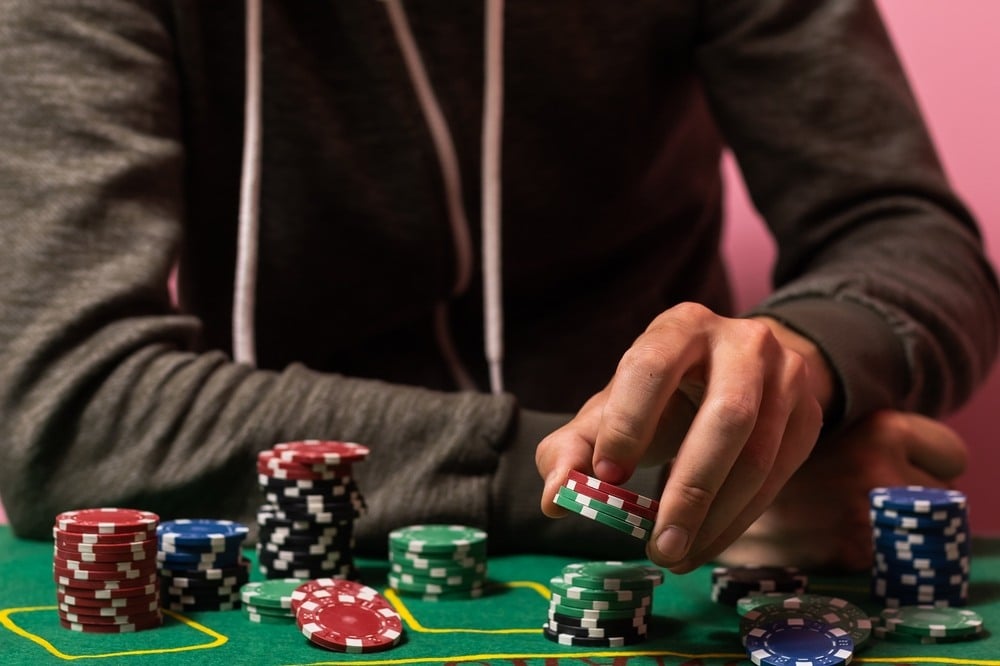
Image Credit: Andrew Angelov/Shutterstock
Poker Tip 4: Which Cards do I Play? Quick and dirty version
Now I understand you might be looking for faster poker tips — not the homework required with memorizing preflop charts. While this will always be my preferred method of studying, there is a shortcut.
When in doubt, these are the three categories of cards I allow my students to play.
- Pairs. If you’re dealt a pair — such as a pair of nines — you can play it.
- Face cards. If you’re dealt two face cards — Ace, King, Queen, Jack — you can play it. Please note that both cards must fall into this category, Ace-Three or Queen-Eight type holdings don’t qualify. You can, however, be more flexible and include tens.
- Suited connectors. Only play number cards if they are ‘suited’ (the same suit), and ‘connected’ (consecutive). Hands like 7♣️8♣️ or 5♥6♥. Does a hand like a 9♣️10♥ count? Absolutely not — the cards need to fulfill both criteria. The same suit and numerically sequential.
Poker Tip 5: Which Cards do I Play? Quicker and Dirtier
Let’s say that’s still too complicated — and you’re looking for fast poker tips to go to the casino tonight. There is an accelerated option.
Only play cards that can form a royal flush.
That means any combination of an ace, a king, a queen, a jack, and a ten that are the same suit.
Examples: A♣️K♣️, K♦Q♦, Q♠J♠, J♥10♥, A♦J♦, K♣️10♣️, A♥Q♥. You can also add pairs of these holdings like two Aces, two Kings, two Queens.
I will admit, this is going to be a very restrictive way of playing. But it’s a hard-and-fast rule that works wonders. Can it make a royal flush? If yes — play. If not — fold.
The goal isn’t necessarily to hit a royal flush — that’s extremely rare. The strategy here is to make higher hand combinations than your opponents. They might hit a lower flush, but you’ll beat them with an ace-high flush. Or you’ll outkick their pairs, like beating their King-Nine with your King-Queen.
These hands lead to higher straights, flushes, full houses, and pair combos — and help you avoid getting trapped with a second-best hand. By following this approach, you’ll greatly reduce the chances of losing with a weaker kicker or lower flush.
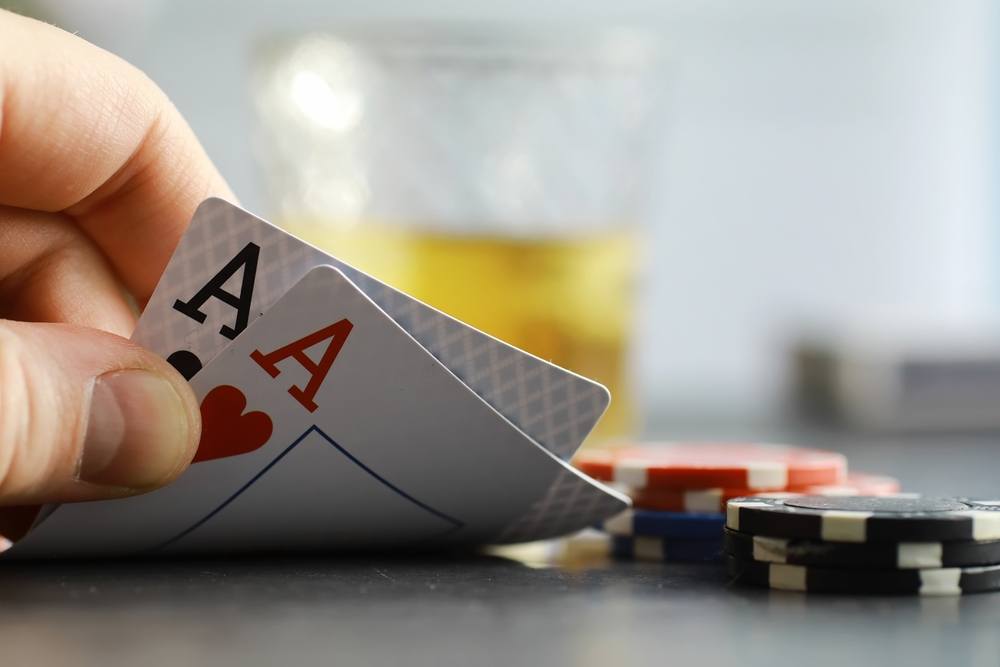
Image Credit: Alexkich/Shutterstock
Poker Tip 6: Are Suited Cards Really Worth It? Don’t be Fooled
One of the most common mistakes beginner poker players make is overvaluing suited cards — two cards of the same suit. It’s easy to get dazzled by diamonds or seduced by spades, but don’t fall for it.
The truth is, being suited only increases your hand’s strength by 2-3%.
Many players know to fold J♥3♠ without hesitation, but when they see J♥3♥, their palms get sweaty and they’re eager to join the party. They think the suited cards really make a difference. They need to think again. In reality, suited cards are more of a tie-breaker than a reason to play a hand. By themselves, they’re far from premium.
Not only is the statistical boost minimal, but suited hands can put you in tough situations.
Take J♥3♥, for example. If the flop comes A♥K♥2♣, you’ll be stuck hoping for another heart — which won’t happen most of the time. In fact, flush draws on the flop will only complete by the river 36% of the time.
That’s why if you play suited cards, you need another plan, like hitting a strong pair or a straight. But hands like J♥3♥ only make weak pairs, like a three or a Jack with a bad kicker, and aren’t even connected enough to form a straight.
Random suited hands lead to awkward spots where you’re left with a low pair or a weak top pair, constantly second-guessing if you’re ahead. Save yourself the mental strain — poker is won by avoiding marginal decisions and close calls.
The key to success in all poker tips is putting yourself in spots where you have a clear, significant advantage over your opponents.
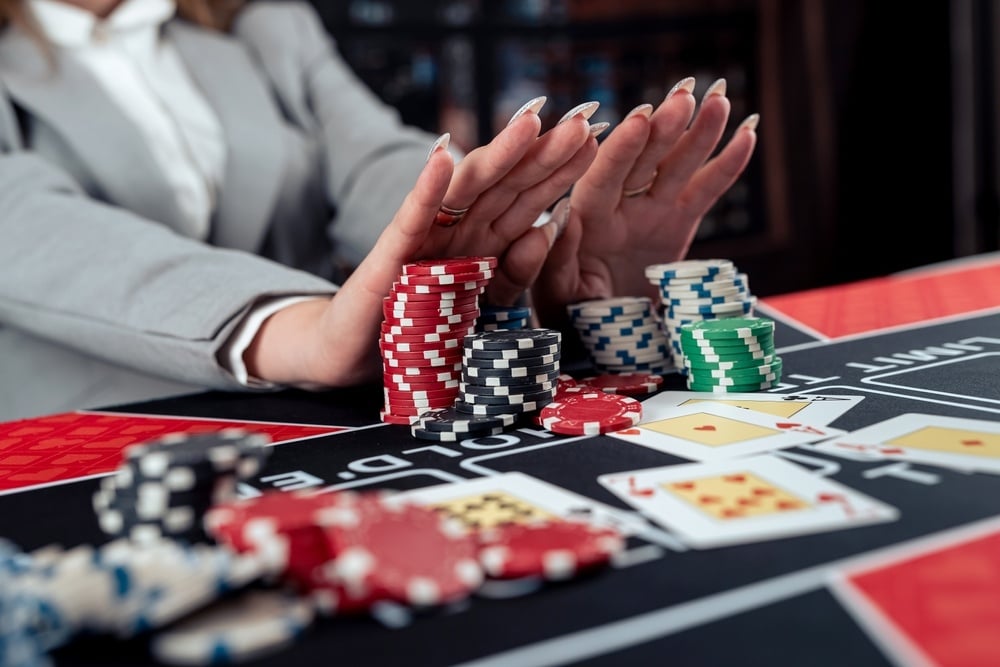
Image Credit: RomanR/Shutterstock
Poker Tip 7: Know The Math
Knowledge is power — especially in poker. You should have the most common and constantly recurring mathematical statistics committed to memory.
As part of these poker tips, here are the big ones on a must-know basis.
- You’ll miss the flop 2/3 of the time. This means your cards won’t improve to a pair, straight, flush, or any higher-ranking hand most of the time.
- A pocket pair versus two overcards is known as a “flip” because the odds are roughly 50/50. If you go all-in preflop with A♦K♣ against 2♦2♥, the pocket pair is a slight favorite, but it’s a near even match.
- You’ll only flop a flush 1 in every 118 hands. Another reason why suited cards aren’t as valuable as they seem.
- Flush draws complete by the river 36% of the time.
- An open-ended straight draw will hit 32% of the time, making it just a bit tougher to land than a flush. For example, with 7♠6♥ and a flop of 9♦8♥2♣, you’re hoping for any 5 or 10 to complete your straight. You have only eight straight cards to hit as opposed to nine flush cards.
- Gutshot straight draws are even less likely, hitting just 16% of the time. This happens when you’re drawing to a straight from just one side, like holding 7♠6♥ on a 10♠8♥2♣ flop, needing a 9 to hit.
- You’ll flop a set with a pocket pair 12% of the time, or once in every 8.5 flops. For example, holding 2♣2♠ on a Q♦J♥2♠ flop.
- A pocket pair against one overcard, like K♠K♣ versus A♦K♦, is about a 70/30 split, with the pair being the favorite.
Personal sidenote: a pair versus one ‘overcard’ is roughly 70/30. So a hand like Ace-King will beat pocket Kings close to 30% of the time.
How The Math Works in Real Life
A personal story really drove these numbers home for me. The first time I played poker at a casino with my dad, we were winding down after a few hours and getting ready to cash out. I looked down at my last hand: K♣K♠.
A reckless player at the table raised preflop. I reraised. Without hesitation, he shoved all-in. I glanced at my dad and said, “Please don’t be mad at me!” before making the call.
The board ran out A♦3♠8♥7♣J♥.
He flipped over A♥K♦ and took the pot. Preflop, I was a 70% favorite to win, but the ace on the flop changed everything.
I looked back up at my dad again sheepishly saying, “I’m sorry Dad, I had to call.”
He responded, “I’d be more upset if you didn’t call.”
This taught me an important poker tip — luck isn’t always on your side, but you can’t be afraid to make the right call when the math is in your favor.
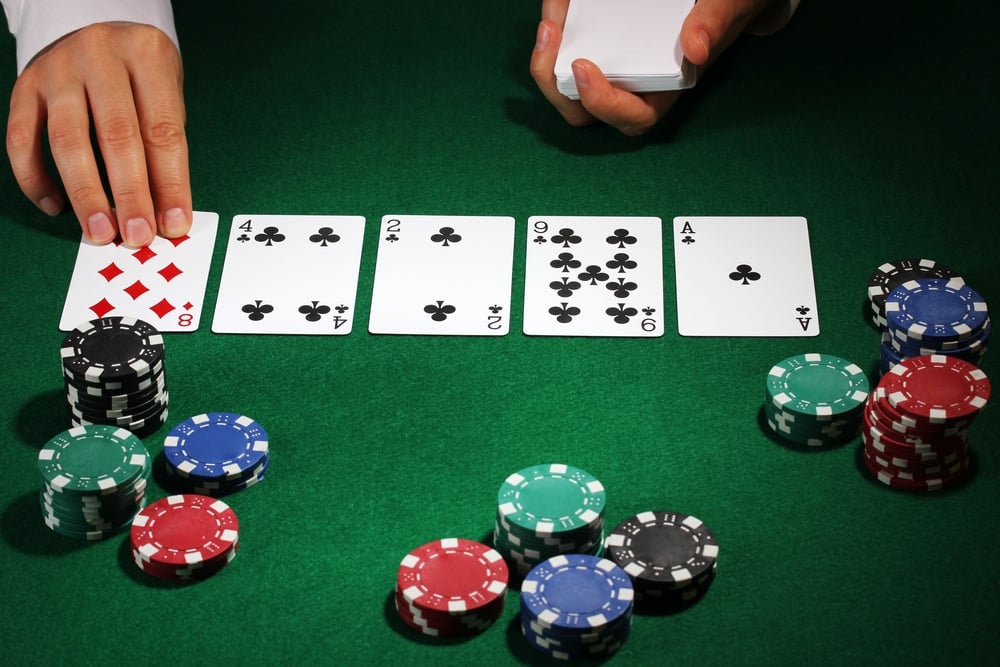
Image Credit: Africa Studio/Shutterstock
Poker Tip 8: Practice Online
One of the most essential poker tips to improving your game is learning to play online. Online poker is faster and more challenging than live play —- making it the perfect training ground.
- The average casino table deals 30 hands/hour.
- The average online casino table deals 90 hands/hour.
- Online casinos allow you to play multiple tables at the same time, multiplying your experience exponentially.
Because online allows you to see a much greater frequency of hands, you will acquire experience rapidly quicker. This is why 21-year-old whiz kids can quickly surpass long-time live players who have been in the game for decades. Online allows you to witness the same number of hands in months that it would take in live poker years.
Another key difference is that online poker features more skilled and aggressive opponents. The anonymity of playing behind a screen encourages riskier plays, including more frequent all-ins, making it a more dynamic and unpredictable environment. This actually benefits your learning curve.
The lack of inhibition from sitting behind a computer screen encourages ferocious creativity. This is definitely a good thing, as it’s better to be over-aggressive than under-aggressive. You don’t want to enter the poker world with passive habits — namely, limping and only betting when you have a good hand. These are big no-no’s.
Learning in an online environment is safer in the sense that it is cheaper — you can play for quarters —- but riskier because you will be matched with more sophisticated players and techniques. If you can beat an online environment, you can certainly beat a live casino venue.
Poker Tip 9: Tell a Story
In poker, every bet you make is part of a story you’re telling at the table. When you wager a large amount, you’re signaling that you have a strong hand — a narrative bluffers should avoid. On the flip side, betting the minimum suggests your hand isn’t great. Every chip you put in play is a message.
You’ll often hear phrases like, “The story doesn’t add up” or “Their story doesn’t make sense” from poker commentators. And no, I’m not saying poker is about storytelling just because I’m a writer — it’s actually a well-known concept in the poker world. Winning players focus on crafting a believable story, not just relying on their cards.
Bad players try to win by brute force, oblivious to what their opponents are thinking. They think throwing chips around recklessly is a strategy, but this inflexible style won’t influence others to fold or bend to their will. The brilliance of great poker players lies in their ability to guide opponents into making the decisions they want. If you learn to understand people, you’ll learn to play poker — and maybe even improve in life, too.
When you raise preflop, you’re beginning the story that you have a strong hand. After the flop, you’re expected to continue that narrative — and usually, you should. In poker, the sequel often needs to be stronger than the original.
If you were the preflop raiser, betting after the flop is called a continuation bet (or c-bet). You should do this when facing just one or two opponents because there’s a good chance you either have the best hand or can bluff effectively. Bluffing multiple players is difficult and usually unnecessary — that’s just too much work!
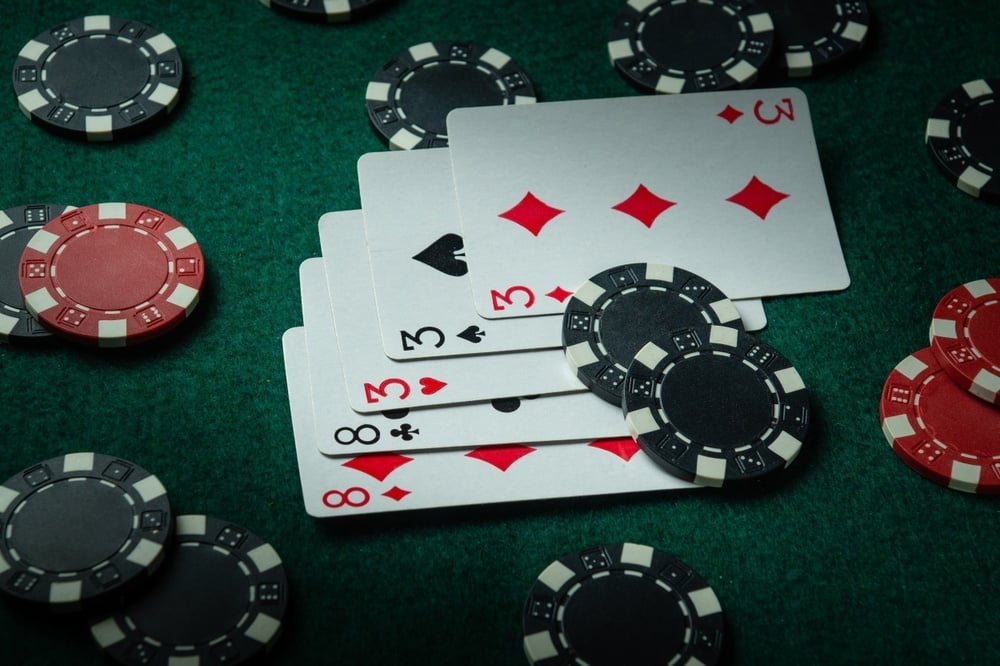
Image Credit: VITALII BORKOVSKYI/Shutterstock
Poker Tip 10: Make Friends
I began this article by advising you to be cautious about where you get poker advice and from whom, and I stand by that. It’s essential to vet your teachers. However, having poker friends you can trust is just as important.
Being able to run hands by each other is incredibly helpful, especially when you’re starting out. A second opinion can really accelerate your development by helping you refine your thought processes.
I already mentioned my dad earlier, but did I mention my husband? He spent over 15 years as a professional poker player, so every dinner conversation begins with something like, “So I had King-Jack…” Analyzing hands together is a sign of true love!
Having a trusted poker friend allows you to work on your game interactively. If you don’t have any poker buddies, consider joining one of the many free Discord groups dedicated to the game. Poker Twitter (now X) is another great community where players gather to share insights. You’ll also find forums, Reddit threads, streamer chats, and opportunities to meet people in person.
Which brings me to my final tip: get good with people. Sociability is a skill, and building connections can enhance your poker game just as much as studying hands.

